GARDINER — Dozens of volunteers picked up plastic coffee cups, cigarette butts, tires, construction debris, food wrappers, masks, and random bits of plastic and anything else found improperly discarded in a spring cleanup Saturday in downtown Gardiner and along Cobbossee Stream. Participants noted, however, that their efforts weren’t really just about cleaning up those two specific areas.
Saturday morning 676 pounds of garbage was collected by 31 volunteers who took part in a cleanup organized by Upstream, a local nonprofit dedicated to restoring sea-run fish passage on Cobbossee Stream. The cleanup was tied to the upcoming Earth Day and focused on cleaning up the Cobbossee Stream corridor. The group was not alone, though, as still more volunteers, organized by downtown advocacy organization Gardiner Main Street, also collected trash and debris Saturday, making for a large combined effort.
Organizers said the trash and debris they picked up would otherwise litter waterways and present a hazard to fish and birds. It could also be washed downstream to the Kennebec River and then into the ocean where it would join the countless tons of human-created trash potentially causing harm to wildlife there, too.
“It’s about more than just right here,” said Palmer Sargent of Chelsea, a board member of Upstream, who picked up some trash bags in Gardiner before heading upstream to Pleasant Pond where he planned to pick up trash on a causeway there. He planned to also clean at Collins Mills Road in West Gardiner. He lives on Togus Stream and said he’s been excited to see the return of alewives there, and wants to see fish passages put in at dams on Cobbossee Stream so the small fish that are a major food source for other fish as well as eagles, ospreys and other birds can travel between the sea and Pleasant Pond.
Other participants joined in to try to clean up around a waterway they love. Upstream organizers sent volunteers to 13 different locations along the stream and above it at Pleasant Pond, through which the stream’s waters pass.
Jonathan Hillier, who recently bought a house on Highland Avenue in Gardiner, said he and his 6-year-old walk on Cobbossee Trail alongside the stream nearly every day, so when he heard about the cleanup efforts he wanted to join and help.
“Send me anywhere, I’m able bodied,” Hillier said as he reported for duty Saturday morning.
Tina Wood of Gardiner, president of Upstream, assigned him to a spot behind the Family Dollar store.
“Cool, I’ve never been to that part, it should be fun,” Hillier responded. “No problem.”
He was back about an hour later, to get a second trash bag after filling the first. He said he spotted a tire and a recliner-type chair in the stream, which he speculated someone threw down there because they didn’t want to pay to take it to be disposed of properly. He said he found lots of plastic wrappers there.
Wood said this is the fifth year the group has taken part in Earth Day-related cleanups, and each year has seen more people than the last. She was pleased with the strong turnout on a rainy and cold day.
“I’m glad people came and love the stream,” she said from the recently rebuilt bridge that takes Bridge Street over Cobbossee Stream in downtown Gardiner, where she handed out trash bags and other items to volunteers. She said the stuff they collected “is a hazard to fish and sea creatures and it all ends up in the ocean, eventually.”
She said while it would be great if there wasn’t any trash to pick up each year — that isn’t realistic — it does seem that past cleanup efforts are making a difference. She noted the areas they’ve targeted do seem to have less trash in them now.
Sharon Whittier of Randolph, a teacher currently on school vacation, also said it appears cleanup efforts are making a difference.
“There seems to be little less than before,” Whittier said as she picked up Dunkin’ cups, empty cigarette packs, and other items under the bridge. She said she wished there wasn’t so much construction debris there. The area under the bridge was littered with parts of broken plastic pipes, a section of metal rebar and other construction materials.
Trash collectors who volunteered with the effort were asked to write down what types of items they collected. They left the trash in bags by the roadside for Upstream volunteers to gather. The group records the data on what they’ve collected, weighs it, and then deposits it in a city truck for disposal.
Collected Saturday were: 361 bottles and cans including hundreds of small “nip” bottles, 186 plastic bags, 189 cups, 38 car parts including four tires, 94 pieces of construction trash, 30 pieces of clothing, 36 fishing-related items, 150 candy wrappers, two carpets, one swimming pool, five face masks, 13 whipped cream cans, one grill, and what the group described as an “uncountable” number of cigarette butts. Organizers said one group stopped counting after they had collected 1,720 butts.
Over on Water Street, as part of Gardiner Main Street cleanup efforts, Elissa Tracey and her kids Victoria, 11, and Louis, 5, as well as Ada Phillips, 11, walked the brick sidewalk picking up cigarette butts, plastic wrappers and other items discarded by others. Each wore gloves. The girls are members of Girl Scout Troop 70 and Tracey is one of the troop leaders.
“Ewww! It’s squishy,” Victoria said as she dropped an unknown item into one of the trash bags her mom and Ada carried to collect waste.
Tracey said they chose to clean the section of Water Street near Johnson Hall because they like to take part in events there. She said the group just wanted to help, and give back.
Steve Brooke, an Upstream volunteer, said alewives are already running this season in the Penobscot River but hadn’t yet been seen in Cobbossee Stream. But he said an osprey flying above the stream Saturday is a sign the return of the fish — at least up Cobbossee Stream until they reach the first dam — is near. He said the return of the osprey and eagle population in Maine is in part due to the increasing run of alewives, which the birds, and many other predators, eat.
“They feed the entire ecosystem,” Brooke said of alewives. Brooke, who served as project coordinator of the Kennebec Coalition during the decommissioning and historic removal of the Edwards Dam in Augusta on the Kennebec River, added, “They’re a keystone species.”
Send questions/comments to the editors.


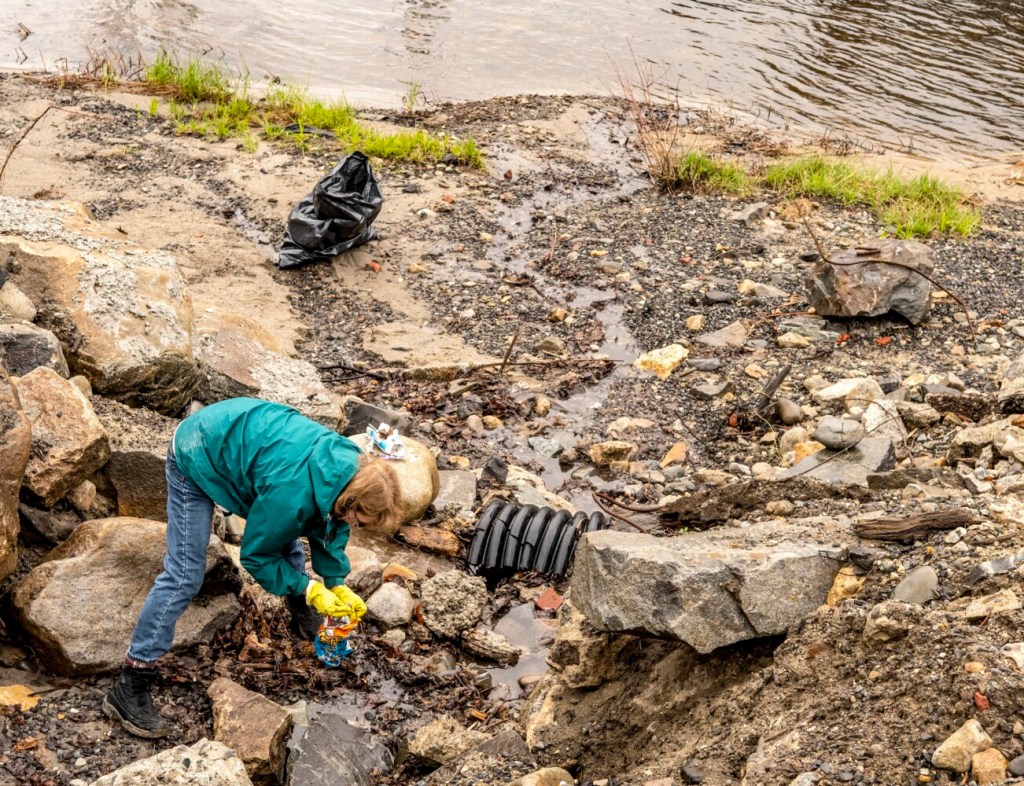
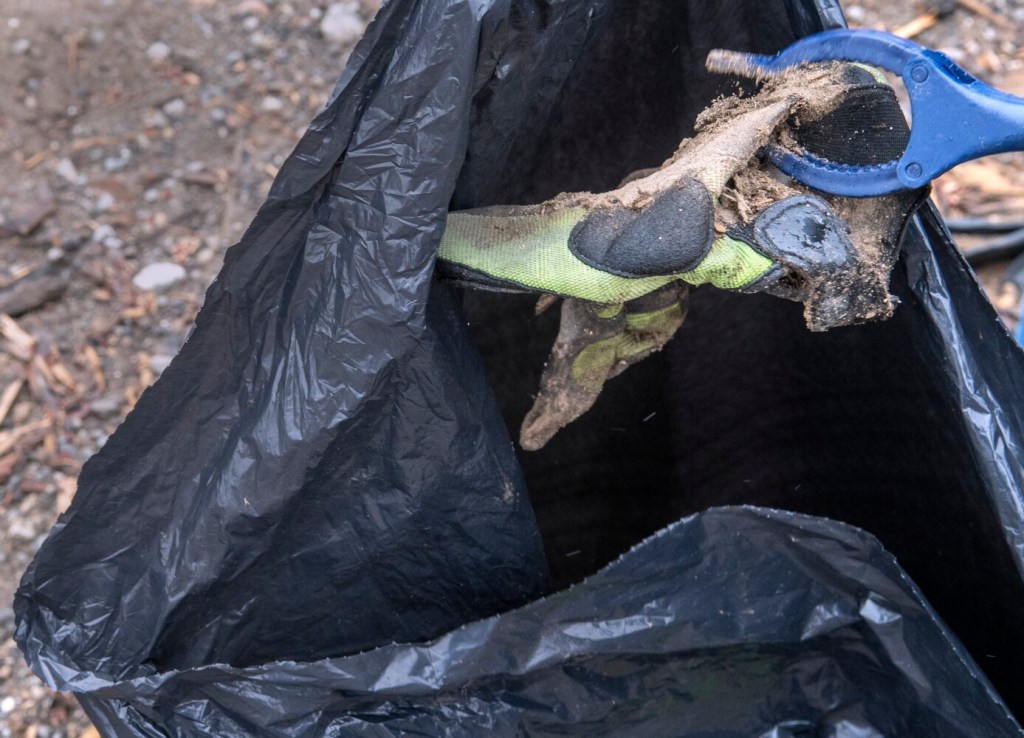
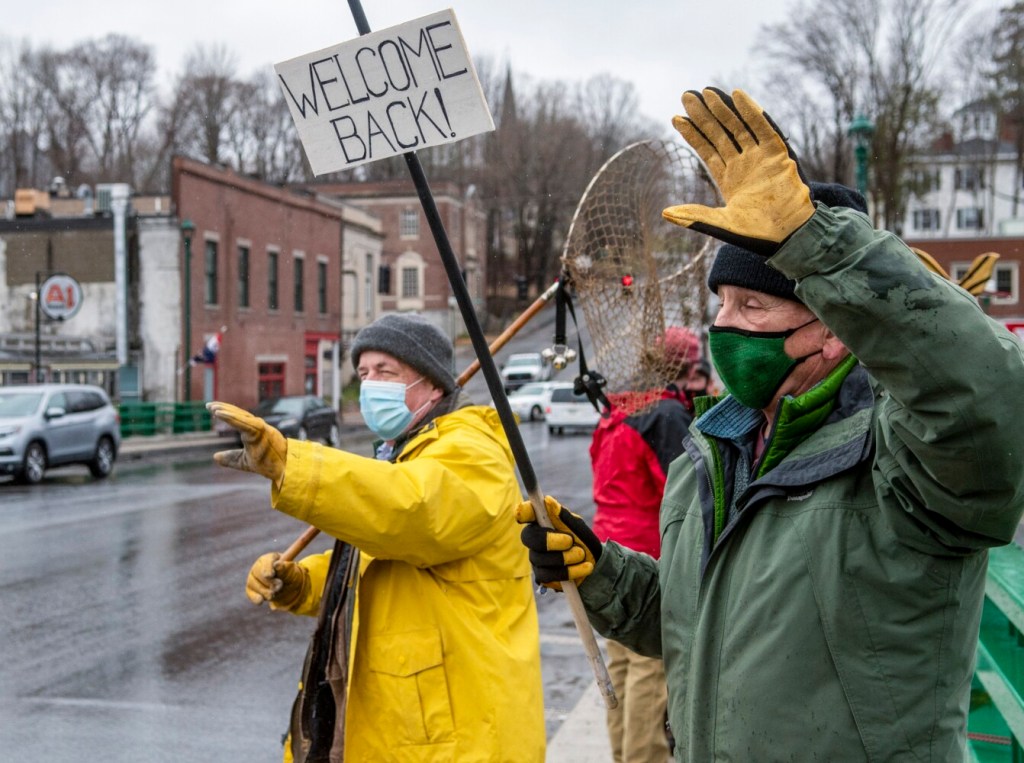
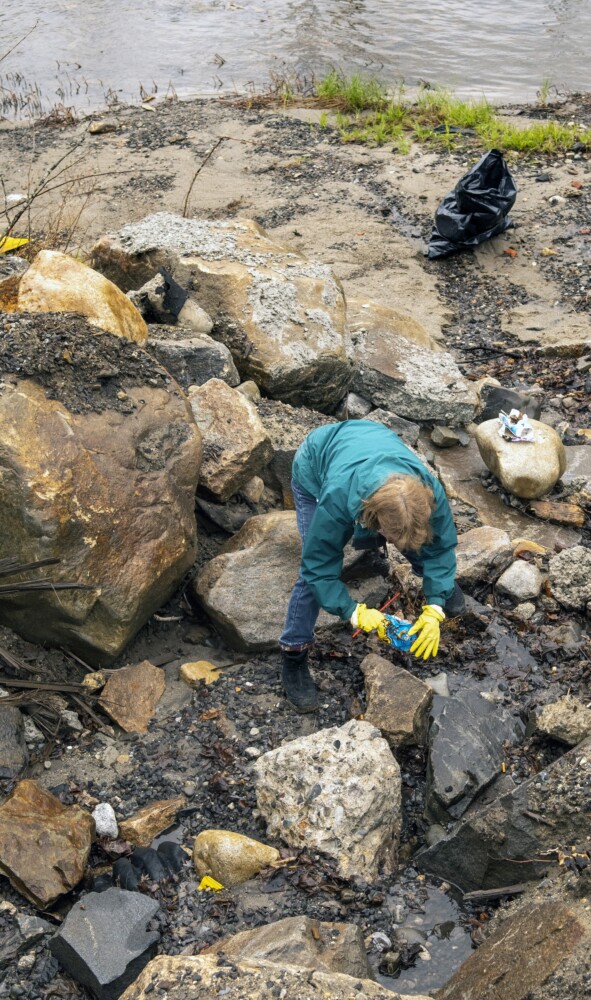
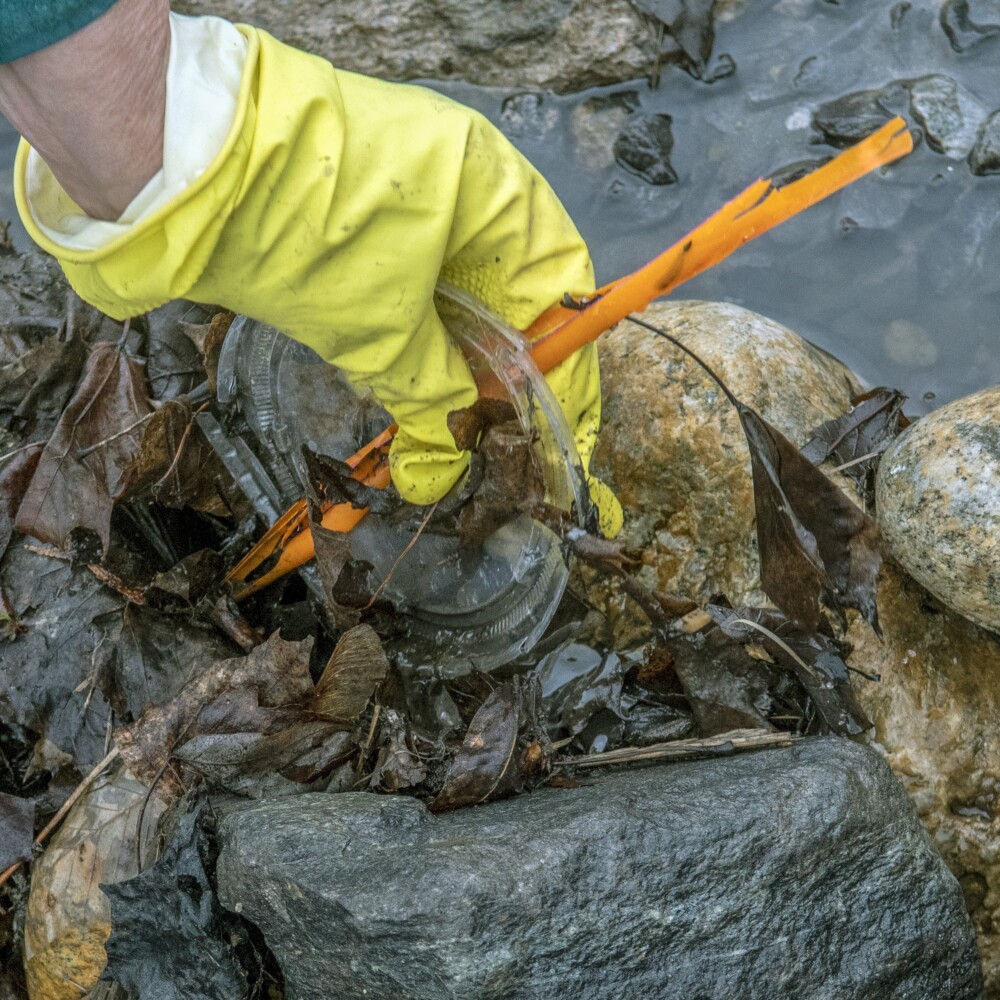
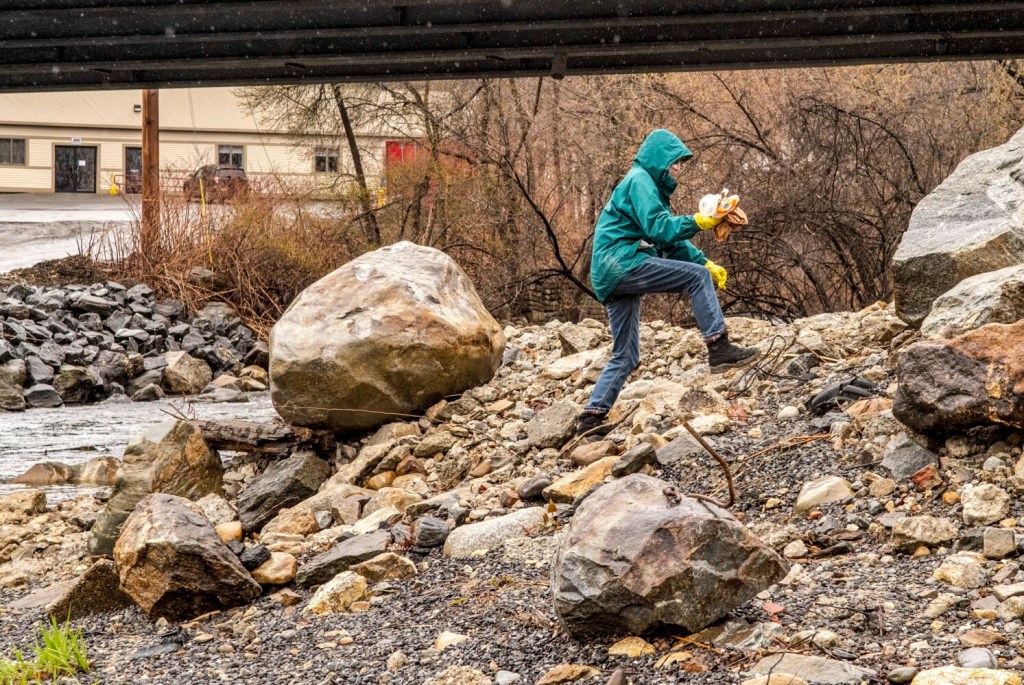

Success. Please wait for the page to reload. If the page does not reload within 5 seconds, please refresh the page.
Enter your email and password to access comments.
Hi, to comment on stories you must . This profile is in addition to your subscription and website login.
Already have a commenting profile? .
Invalid username/password.
Please check your email to confirm and complete your registration.
Only subscribers are eligible to post comments. Please subscribe or login first for digital access. Here’s why.
Use the form below to reset your password. When you've submitted your account email, we will send an email with a reset code.